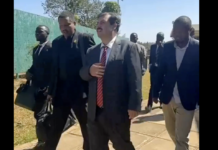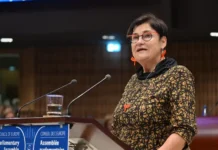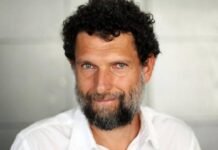Amnesty International and Human Rights Watch (HRW) have called on the European Union and its member states to ensure that human rights are placed at the center of upcoming discussions and any decisions on the future development of EU-Turkish relations.
Amnesty International Europe Office head Eve Geddie and HRW Europe and Central Asia Director Hugh Williamson sent a joint letter to Josep Borrell, the EU high representative for foreign affairs and security policy, ahead of the March 25-26 European Council discussion on EU-Turkey relations.
“We are concerned that over the past year, the human rights situation in Turkey appeared to be largely absent from both European Council discussions on EU-Turkey relations and high-level EU meetings with the Turkish authorities,” the letter said. “The EU and its member states should use all instruments at their disposal to promote genuine human rights reforms in Turkey, urging the authorities to move beyond mere rhetoric and assertions without implementation of general principles – most recently illustrated in the government’s Human Rights Action Plan.”
EU leaders in December had proposed asset freezes and travel bans over Turkey’s “unauthorized drilling activities” for natural gas in disputed waters in the eastern Mediterranean, although they did not specify individuals. The EU had also agreed to weigh tougher economic sanctions and discuss its relations with Turkey at a summit on March 25-26.
The letter also underlined the detention and prosecution of hundreds of opposition politicians, journalists, human rights defenders, lawyers, academics and other civil society actors in recent months by Turkish authorities.
This relentless crackdown on freedom of expression and human rights is made possible by the widespread executive control and political influence over the judiciary, the letter said.
The letter also touched on the cases of Turkish philanthropist Osman Kavala and Kurdish leader Selahattin Demirtaş, and Turkish authorities’ persistent refusal to implement binding judgments from the European Court of Human Rights.
Kavala, a well-known figure in Turkish civil society, has been jailed since October 2017. He faces a potential sentence of life in prison for allegedly trying to overthrow the government of President Recep Tayyip Erdoğan in a July 2016 coup attempt and also is charged with espionage.
Demirtaş co-led the second-largest opposition party, the Peoples’ Democratic Party (HDP), a left-wing party with majority Kurdish support, before his arrest on politically motivated charges in November 2016. He ran for president twice against Erdoğan — once while incarcerated — and is a vocal critic of the government.
“The law on the Prevention of the Financing of the Proliferation of Weapons of Mass Destruction greatly exceeds its stated aim of countering the financing of terrorism and money laundering and poses a serious threat to the legitimate activities of independent civil society organizations,” the joint letter stated.
The terrorism financing legislation, which entered into force on December 31, amends seven domestic laws and enables the interior ministry to target nongovernmental groups’ legitimate and lawful activities and the right to association of their members.
The new law has been criticized by international organizations and human rights groups due to its provisions exceeding the scope of the law and targeting freedom of association in the country.















